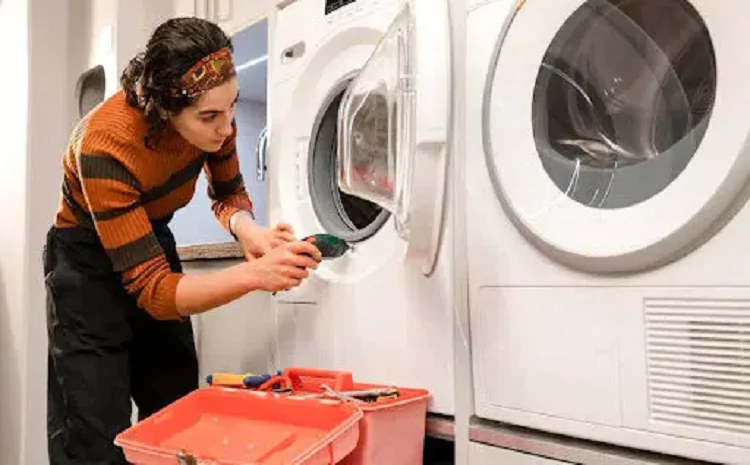Keeping your appliances in top condition is essential for a smooth-running home. Regular appliance repair and maintenance can prevent costly breakdowns and extend the life of your appliances.
Key Takeaways
- Appliance repair is crucial for extending the life of your appliances.
- Understanding when to seek professional repair service can save money and prevent further damage.
- Regular maintenance reduces the need for frequent appliance repairs.
- Simple DIY tips can address minor issues before they become major problems.
Why Appliance Repair is Important
Appliance repair is an essential part of maintaining your home. Whether it’s your refrigerator, washer, or oven, keeping your appliances in good working order ensures they operate efficiently and last longer. Ignoring minor issues can lead to major problems, resulting in costly repairs or replacements.

Common Appliance Issues
Different appliances can experience a range of problems. Here are some of the most common issues that may require repair:
- Refrigerator not cooling: This could be due to a faulty compressor or thermostat.
- Washer not spinning: This might indicate a problem with the motor or belt.
- Oven not heating properly: Often caused by a broken heating element.
When to Seek Professional Appliance Repair Service
While some minor issues can be resolved with a DIY approach, others require the expertise of a professional repair service. Knowing when to call in the experts can save you time, money, and prevent further damage.
Signs You Need Professional Help
- Persistent Issues: If an issue continues after troubleshooting, it’s time to call a professional.
- Complex Repairs: Issues involving electrical components or significant disassembly should be left to the experts.
- Safety Concerns: If you’re unsure about handling the repair safely, it’s best to seek professional help.
DIY Appliance Repair Tips
For those who prefer a hands-on approach, some appliance repairs can be done at home with basic tools and a little knowledge. Here are some tips for common issues:
Refrigerator Repair Tips
- Check the Thermostat: If your refrigerator isn’t cooling, the thermostat may be set too low. Adjust it and wait to see if it improves.
- Clean the Coils: Dirty coils can cause your refrigerator to overheat and stop cooling efficiently. Vacuum the coils to improve performance.
Washer Repair Tips
- Check the Drain Hose: If your washer isn’t draining, the drain hose might be clogged. Remove the hose and clear any blockages.
- Balance the Load: An unbalanced load can cause the washer to vibrate excessively. Make sure clothes are evenly distributed.
Oven Repair Tips
- Replace the Heating Element: If your oven isn’t heating properly, the heating element might be faulty. Replacing it can restore proper function.
- Check the Door Seal: A damaged door seal can cause heat to escape, leading to uneven cooking. Replace the seal if necessary.
Importance of Regular Appliance Maintenance
Regular maintenance is key to preventing the need for frequent appliance repairs. By performing simple tasks, you can keep your appliances in top condition and avoid costly repair services.
Refrigerator Maintenance
- Clean the Coils: Regularly clean the condenser coils to ensure efficient operation.
- Check the Door Seals: Make sure the seals are tight to prevent cold air from escaping.
Washer and Dryer Maintenance
- Clean the Lint Trap: Clean the lint trap after every use to prevent fires and improve efficiency.
- Level the Appliance: Ensure your washer and dryer are level to prevent vibrations and noise.
Oven Maintenance
- Clean Regularly: Clean spills and residue from the oven to prevent odors and improve efficiency.
- Inspect the Gaskets: Regularly check the door gaskets for wear and tear, replacing them as needed.
When to Replace Instead of Repair
While repairing your appliances is often the most cost-effective solution, there are times when replacement is the better option. If an appliance is nearing the end of its expected lifespan, or if the cost of repairs exceeds half the price of a new unit, it may be time to consider replacement.
Factors to Consider
- Age of the Appliance: Older appliances may not be worth repairing if they are close to the end of their life expectancy.
- Cost of Repair: If the cost of the repair is more than half the price of a new appliance, replacement might be more economical.
- Energy Efficiency: Newer appliances are often more energy-efficient, which can save money in the long run.
Conclusion
Appliance repair is a critical part of maintaining a functional and efficient home. Whether you choose to tackle minor repairs yourself or seek professional service, understanding when and how to repair your appliances can save you time and money. Regular maintenance will extend the life of your appliances, reducing the frequency of repairs and ensuring they continue to operate at peak performance. When necessary, don’t hesitate to consult a professional appliance repair service to handle more complex issues, ensuring your home remains comfortable and efficient.